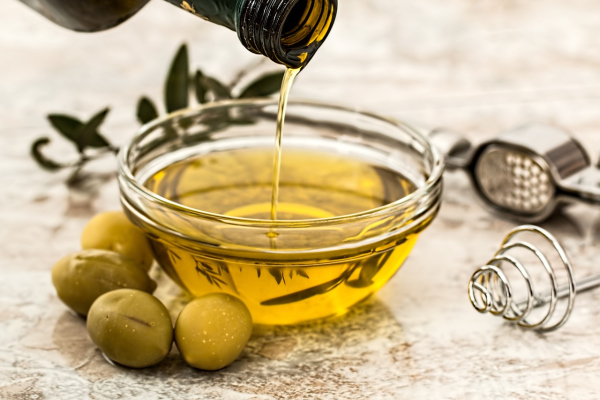 |
The Finest Harvest in Every Bottle:PDO/DOP Certified Extra Virgin Olive Oils |
 |
The Finest Harvest in Every Bottle:PDO/DOP Certified Extra Virgin Olive Oils |

Organic vs. Conventional Extra Virgin Olive Oil: What’s the Difference?Understanding Organic EVOOOrganic extra virgin olive oil (EVOO) is produced without the use of synthetic pesticides, herbicides, or fertilizers. It adheres to organic farming standards and practices, which aim to protect the environment and promote biodiversity. Organic farming emphasizes the use of natural inputs, crop rotation, and sustainable practices to maintain soil health and reduce environmental impact. Benefits of Organic EVOOOrganic EVOO is free from chemical residues and is often perceived as healthier and more environmentally friendly. It supports sustainable farming practices and helps maintain soil health and biodiversity. Additionally, organic farming methods can enhance the flavor and nutritional content of the olive oil, as the olives are grown in healthier, more balanced ecosystems. Conventional EVOOConventional EVOO may use synthetic chemicals in the farming process. While it can still be high quality, it does not adhere to the same stringent environmental standards as organic EVOO. Conventional farming practices can involve the use of pesticides, herbicides, and fertilizers, which can impact soil health and biodiversity. However, conventional EVOO can still be a good choice if sourced from reputable producers who prioritize quality and sustainability. Flavor and QualityThe flavor and quality of both organic and conventional EVOO can be excellent. The choice often comes down to personal preference and values regarding environmental impact and health. Some consumers may prefer the peace of mind that comes with organic certification, while others may prioritize the flavor profile and price of the oil. Both types of EVOO can offer rich, complex flavors and high nutritional value when produced with care. Certifications and LabelsWhen choosing between organic and conventional EVOO, look for certifications and labels that indicate quality and authenticity. Organic certifications, such as USDA Organic or EU Organic, ensure that the oil meets strict organic farming standards. For conventional EVOO, look for certifications like PDO (Protected Designation of Origin) or PGI (Protected Geographical Indication), which guarantee the oil's origin and production methods. Expert InsightsOrganic certifier Dr. Alex Green states, "Choosing organic EVOO supports sustainable agriculture and provides consumers with a product free from synthetic chemicals. It can also enhance the flavor and nutritional profile of the oil, as organic farming practices promote healthier ecosystems." Price ConsiderationsOrganic EVOO is often more expensive than conventional EVOO due to the additional costs associated with organic farming practices and certification. However, many consumers are willing to pay a premium for the perceived health and environmental benefits. Conventional EVOO can be more affordable and still offer excellent quality, especially when sourced from reputable producers. Making an Informed ChoiceWhen deciding between organic and conventional EVOO, consider your priorities and values. If environmental sustainability and chemical-free farming are important to you, organic EVOO may be the better choice. If you are primarily concerned with flavor and quality, you may find excellent options among both organic and conventional oils. Reading labels, researching brands, and conducting taste tests can help you make an informed decision. Learn more about selecting high-quality EVOO in our Buyer’s Guide. Discover the environmental impact of olive oil production in The Environmental Impact of Olive Oil Production and explore different olive varieties in Exploring Different Olive Varieties Used in Extra Virgin Olive Oil. |
Disclaimer: Some articles on this site mention various health benefits of extra virgin olive oils. Some of the benefits have been researched and some are from individual's personal experiences. In any case, these articles are not intended to act as a medical reference. If you are using, or are considering using olive oil for specific health related issues, you are advised to speak with your health care provider for advice pertaining to your situation. These articles are for educational purposes only.